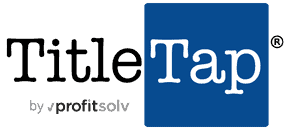But how do you go about ensuring that your website is protected? In this article, we’ll cover some of the most important keys to website security to help you better protect not only your site but also your clients and your reputation.
The Key Elements of Website Security
From malware to phishing schemes, cyber threats can come in a lot of different forms. This requires website owners to take a comprehensive and multi-faceted approach to cybersecurity. Some of the biggest keys to a safe and secure website include things like:
Enhancing Security with SOC2 Compliance
SOC2 compliance is widely considered the gold standard for data security in service organizations. By achieving SOC2 compliance, you ensure that your website adheres to a rigorous set of standards for securely handling client data.
SOC2 focuses on five key principles known as the Trust Services Criteria:
- Security: Ensures systems are protected against unauthorized access and threats.
- Availability: Verifies that systems are operational and accessible.
- Processing Integrity: Confirms that data is processed accurately, completely, and in a timely manner.
- Confidentiality: Safeguards sensitive information from unauthorized access.
- Privacy: Protects the collection, use, and handling of personal data.
Achieving and maintaining SOC2 compliance can be a challenge given the range of standards it requires. By doing so, however, you can make a strong statement about your company’s commitment to cybersecurity.
Built-in Fraud Protection
Protecting your company and website visitors from fraud is a big part of website security, and the most effective way to do this is with built-in fraud protection mechanisms. By identifying potential risks early, these systems safeguard your website from unauthorized transactions, account takeovers, and other forms of fraud.
Fraud protection tools use algorithms to analyze behavior patterns and flag any suspicious activities. They can detect things like unusual login attempts from different locations, sudden changes in purchasing behavior, and multiple failed payment attempts in real-time so that you can identify potentially fraudulent transactions before they are completed and take action before any damage is done.
Real-Time Alerts
Real-time alerts are another vital element of website security because, as with fraud protection systems, they allow you to respond to incidents as soon as they occur. Website monitoring systems can be used to detect a wide range of potential threats in real-time, from the traffic surges that often signal a DDoS attack to unauthorized access to sensitive areas of your website.
In the world of cybersecurity, responding quickly to threats can be the difference between preventing an incident from ever occurring and suffering a devastating breach. Without the right tools, these threats are often impossible to identify until the damage is already done. But by combining real-time alerts with a good incident response plan that covers a variety of security scenarios, you can ensure that you’re able to respond to threats as swiftly and effectively as possible.
Secure Online Payments
If your company accepts payments online, the importance of ensuring that this process is secure cannot be overstated. No type of data presents a more tantalizing target for hackers than a client’s payment information. By the same token, it’s also the data that clients care most about protecting, meaning that your company’s reputation will take a big hit if it fails to keep it safe.
Thankfully, there are numerous high-quality payment systems that do an excellent job of safeguarding financial data during transactions. TitleTap’s Online Payments Solution, for example, is designed specifically for law firms and title companies and automatically encrypts payment data during each transaction. If you’re looking for a secure and seamless way to process payments on your website, it’s a great solution to consider.
Along with protecting your clients’ financial data, using a secure payment system will also help reduce the risk of chargebacks and fraudulent transactions. These can cost companies a lot of money if they aren’t prevented, making it important to choose a payment system that features built-in mechanisms for detecting and blocking these transactions.
Website Best Practices for Law Firms and Title Companies
The Consequences of Poor Website Security
Any company that has suffered a successful cyberattack knows just how damaging they can be. And the most troubling part is that this damage can come in multiple different forms. Some of the most costly consequences of poor website security include:
Website Downtime
Cyberattacks can often cripple a website, either dramatically slowing down its performance or taking it offline entirely. This can lead to extended periods of downtime while you work on fixing the issue. Having your website go down is more than just an inconvenience. At best, it prevents clients from doing business with you online throughout the downtime period. At worst, it causes clients to look elsewhere for their needs and never return to your company again.
Financial Losses
The financial losses that poor cybersecurity can lead to come from a variety of sources. Expenses associated with fixing the damage, lost revenue due to downtime and decreased client trust, and legal penalties are just a few of the losses a company will often incur following a cyberattack. If you want to prevent your business from taking these major financial blows, it’s important to take cybersecurity seriously.
Damage to Brand Reputation and Trust
It goes without saying that most people are hesitant to work with a company if they can’t trust the company to keep their sensitive data safe. In industries like real estate where large transactions and the transfer of personal information are common, this is even more true.
Even once the damage is fixed and all immediate expenses are absorbed, the effects of a data breach can continue to haunt a company for years after the incident. In fact, protecting your company’s reputation as an option clients can trust is perhaps the biggest reason why website security matters.
Conclusion
There’s a lot that goes into building an effective website, from optimizing it for SEO to ensuring that it is designed for high conversion rates. However, nothing is more important than making sure your website is secure.
If you would like to design a high-quality website for your law firm or title company that includes all the cutting-edge security features needed to protect your company and its clients, TitleTap can help! At TitleTap, we specialize in building fully optimized and secure websites for the real estate industry. To learn more about our exceptional web design services, feel free to schedule a demo today!


